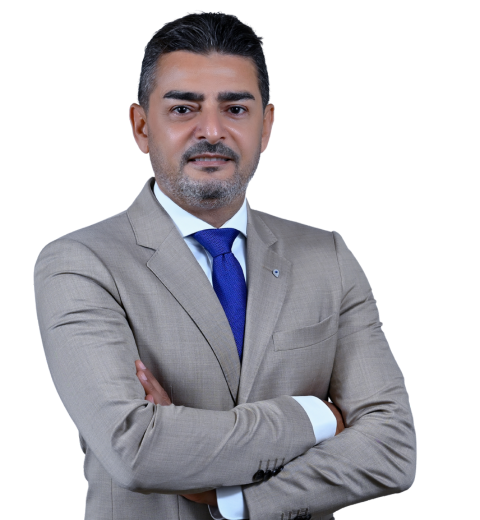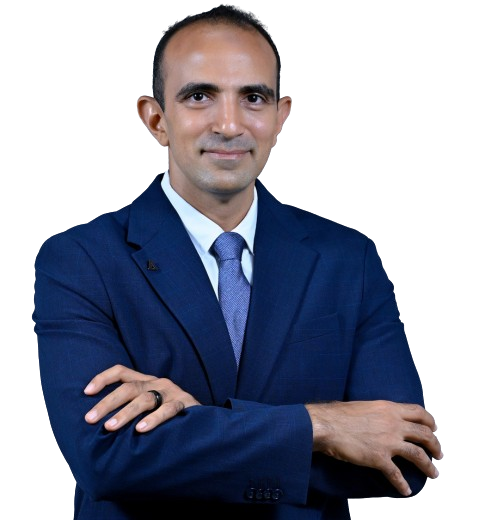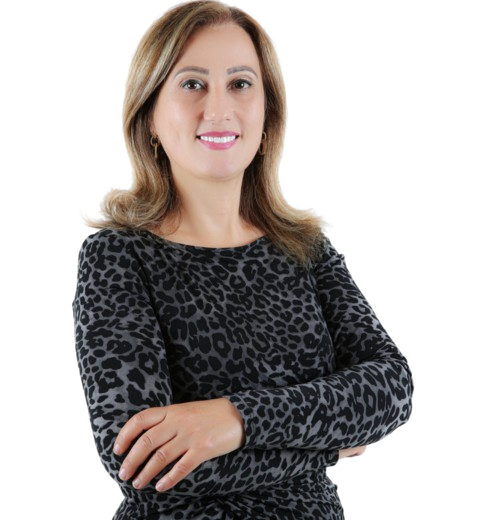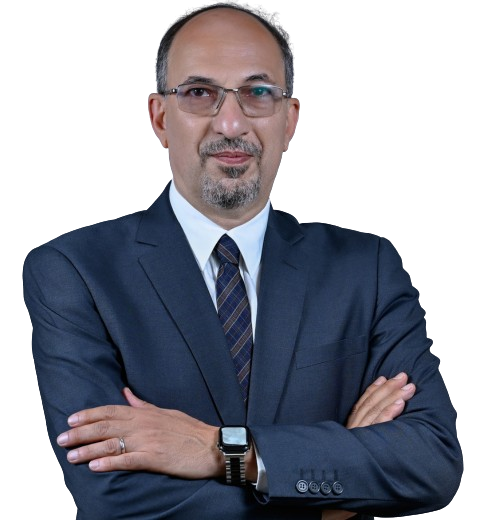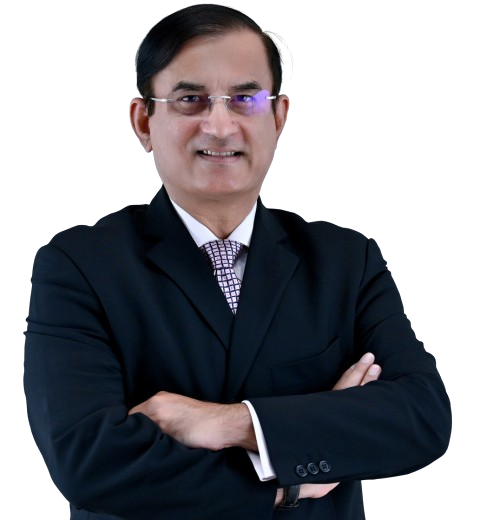
Dr. Irfan Aslam Group IVF Lab Director
Years of Experience : 30+
Nationality : British
Languages Known : English, Urdu, Punjabi, Hindi
800 23Biography
Dr. Aslam is a distinguished embryologist with over 30 years of dedicated experience in clinical embryology, particularly in the realm of assisted reproduction technologies. Currently, he holds the position of Group IVF Lab Director, a role in which he leverages his extensive expertise accumulated over two decades in senior embryology positions such as Senior Embryologist, Lab Manager, and IVF Lab Director at prominent institutions. His professional credentials are further bolstered by his licenses from several prestigious regulatory bodies: the Human Fertilisation and Embryology Authority (HFEA) in the UK, the Abu Dhabi Health Authority (HAAD), the Department of Health in Dubai (DOH), and the Ministry of Health in Saudi Arabia (MOH KSA). Notably, Dr. Aslam played a pivotal role in achieving the first successful College of American Pathology (CAP) accreditation for an IVF lab in the UAE and has a track record of participating in successful Joint Commission International (JCI) accreditations and re-accreditations. In addition to his clinical accomplishments, Dr. Aslam has a strong academic and research background. He has imparted his knowledge of Physiology to medical students at Nishtar Medical College in Pakistan and has taught Reproductive Physiology to Master’s students at the University of Nottingham in the UK. His academic tenure, spanning over four years, has been instrumental in shaping the education and professional development of future medical practitioners. He has published his research in prestigious international peer revived journals. Dr. Aslam’s blend of extensive clinical experience, academic contributions, research and leadership in IVF laboratories underscores his ability to address complex laboratory challenges and drive innovation in fertility care. His strategic vision and scientific acumen make him a leading figure in the field of assisted reproduction.
Awards & Achievements
- Achieved the first successful College of American Pathology (CAP) accreditation for an IVF lab in the UAE and has a track record of participating in successful Joint Commission International (JCI) accreditations and re-accreditations.
Research & Publications
- Abdo N. M., Aslam I., Irfan S., George J. A., Alsuwaidi A. R., Ahmed L. A., and Al-Rifai R. H. (2023). Chlamydia trachomatis seroepidemiology and associated factors in fertility treatment-seeking patients in the Abu Dhabi Emirate, United Arab Emirates. Sexually Transmitted Diseases, 50, 583-590.
- Abdo N. M., Ahmad H., Loney T., Zarmakoupis P. N., Aslam I., Irfan S., Grivna M., Ahmed L. A., and Al-Rifai R. H. (2023). Characterization of Fertility Clinic Attendees in the Abu Dhabi Emirate, United Arab Emirates: A Cross-Sectional Study. International Journal of Environmental Research and Public Health, 20, 1692-1712.
- Abdo N. M., Aslam I., Irfan S., George J. A., Alsuwaidi A. R., Ahmed L. A., and Al-Rifai R. H. (2022). Herpes simplex virus type 2 seroprevalence and associated factors in a fertility treatment-seeking population: A cross-sectional survey in the United Arab Emirates. Frontiers in Public Health, 10, 1-10.
- Aslam I. (2004). Isolation of spermatogenic cells from testicular biopsies of azoospermic men revisited: Is there any predictive factor for successful spermatid recovery? Human Reproduction, (in press).
- Aslam I., Fishel S., Moore H., Dowell K., and Thornton S. (2000). Fertility preservation of boys undergoing anti-cancer therapy: A review of the existing situation and prospects for the future. Human Reproduction, 15, 2154-2159.
- Fishel S., Aslam I., Lisi F., Rinaldi L., Timson J., Jacobson M., Gobetz L., Green S., Campbell A., and Lisi R. (2000). Should ICSI be the treatment of choice for all cases of in vitro conception? Human Reproduction, 15, 1278-1283.
- Aslam I. (1999). Spermatid extraction and selection from testes. In The Human Testis: Its Role in Reproduction and Sexuality (Ed. Fabris G.F.M.), Monduzzi Editore, Bologna, Italy, 45-51.
- Araki Y., Ogawa S., Ohno M., Yoshizawa M., Araki S., Aslam I., and Fishel S. (1999). Successful metaphase chromosome analysis of human elongated spermatids using mouse oocytes. Molecular Human Reproduction, 5, 784-787.
- Aslam I. and Fishel S. (1999). Evaluation of fertilization potential of freshly isolated, in-vitro cultured, and cryopreserved human spermatids by injection into hamster oocytes. Human Reproduction, 14, 1528-1533.
- Aslam I. (1999). Human spermatid microinjection: The clinical implications. Ph.D. thesis, University of Nottingham, U.K.
- Aslam I., Fishel S., Green S., Campbell A., Garratt L., McDermott H., Dowell K., and Thornton S. (1998). Can we justify spermatid microinjection for severe male factor infertility? Human Reproduction Update, 4, 213-222.
- Aslam I. and Fishel S. (1998). Short-term in-vitro culture and cryopreservation of spermatogenic cells used for human in-vitro conception. Human Reproduction, 13, 634-638.
- Aslam I. and Fishel S. (1998). Immature sperm and assisted conception. Current Obstetrics and Gynecology, 8, 36-43.
- Aslam I., Robins R.A., Dowell K., and Fishel S. (1998). Isolation, purification, and assessment of viability of spermatogenic cells from testicular biopsies of azoospermic men. Human Reproduction, 13, 639-645.
- Aslam I. and Fishel S. (1996). The use of spermatids for human conception. In Signal Transduction in Testicular Cells (Eds. Hansson V., Levy F.O., and Tasken K.), Springer-Verlag, Berlin, Heidelberg, New York, 271-286.
- Fishel S., Aslam I., and Tesarik J. (1996). Spermatid conception: A stage too early, or a time too soon? Human Reproduction, 11, 1371-1375.
- Aslam I., Scobie G., and Fishel S. (1996). Genomic imprinting in the spermatogenic cells used for in-vitro fertilization. Journal of Reproduction and Fertility, Abstract series no. 18: 1.
- Aslam I. (1992). Role of antibodies against sperm in unexplained infertility. M.Phil. thesis, University of Karachi, Pakistan.
Education & Training
- Ph.D. in Reproductive Physiology School of Human Development, University of Nottingham, U.K., 1999
- M.Phil. in Physiology University of Karachi, Pakistan, 1992
- MBBS Zakariya University, Multan, Pakistan, 1986
- B.Sc. Zakariya University, Multan, Pakistan, 1983
Expertise
- Embryology
- Andrology
Membership
- European Society of Human Reproduction and Embryology (ESHRE)
- American Society of Reproductive Medicine (ASRM)
- Middle East Fertility Society (MEFS)






